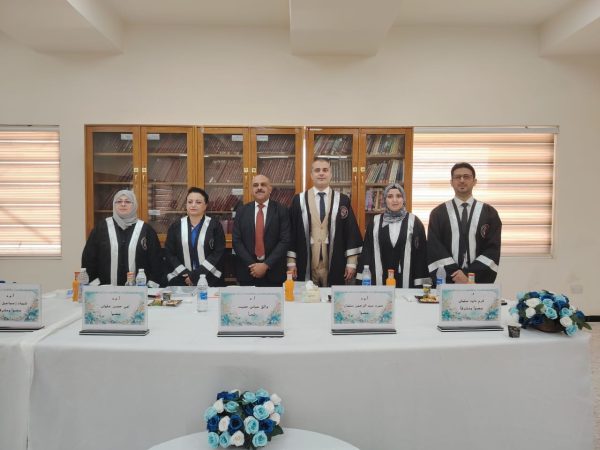Master Discussion
The College of Science for Women at the University of Baghdad examined a master’s thesis entitled ” Molecular Detection of Dental cavity Bacteria Isolated from Cardiac Disease Patients in Baghdad “, presented by the postgraduate student Amal Hameed Abdullah as a requirement for the degree of Master of Science in Biology/Genetic . The study was supervised by Asst. Prof. Dr. Shaymaa I. Kadhim and Dr. Karam D. Salman.
The thesis investigated the composition of the oral microbiome in patients with cardiovascular disease using 16S rRNA gene sequencing. It focused on the potential link between dental root canal infections caused by Enterococcus faecalis and infections associated with heart valve replacements. The study also evaluated the bacterial virulence genes and antimicrobial resistance profiles of E. faecalis isolates.
A total of 120 dental cavity samples were analyzed, including 80 samples from patients with heart valve replacements and 40 from healthy individuals with dental caries. Standard microbiological and molecular techniques were employed, including culture on blood and Mitis Salivarius agar, Gram staining, and biochemical identification using the VITEK 2 system. The results showed that Enterococcus faecalis and various Streptococcus species were the most prevalent. Species confirmation was achieved via 16S rRNA gene amplification. E. faecalis accounted for 29.2% in patients and 45.1% in controls, while Streptococcus mitis, S. salivarius, S. mutans, and S. sobrinus were detected at varying proportions. Antimicrobial susceptibility testing indicated complete susceptibility of E. faecalis isolates to ampicillin, partial susceptibility to linezolid and teicoplanin, and resistance to vancomycin in all isolates, with some also resistant to teicoplanin.
Molecular analysis of virulence factors using multiplex and monoplex PCR revealed that the gelE gene was detected in 86.6% of E. faecalis isolates, whereas Esp and cylA genes were present in 60% of isolates. Sanger sequencing demonstrated high similarity between the Esp gene and its reference sequence, while the cylA gene showed nucleotide substitutions leading to amino acid changes compared to the reference strain.
The study concluded that E. faecalis from dental root infections may play a role in heart valve replacement infections. It recommended the use of ampicillin as an effective treatment option for infections caused by these isolates and called for further studies on their pathogenic mechanisms and clinical impact.
Excellent










